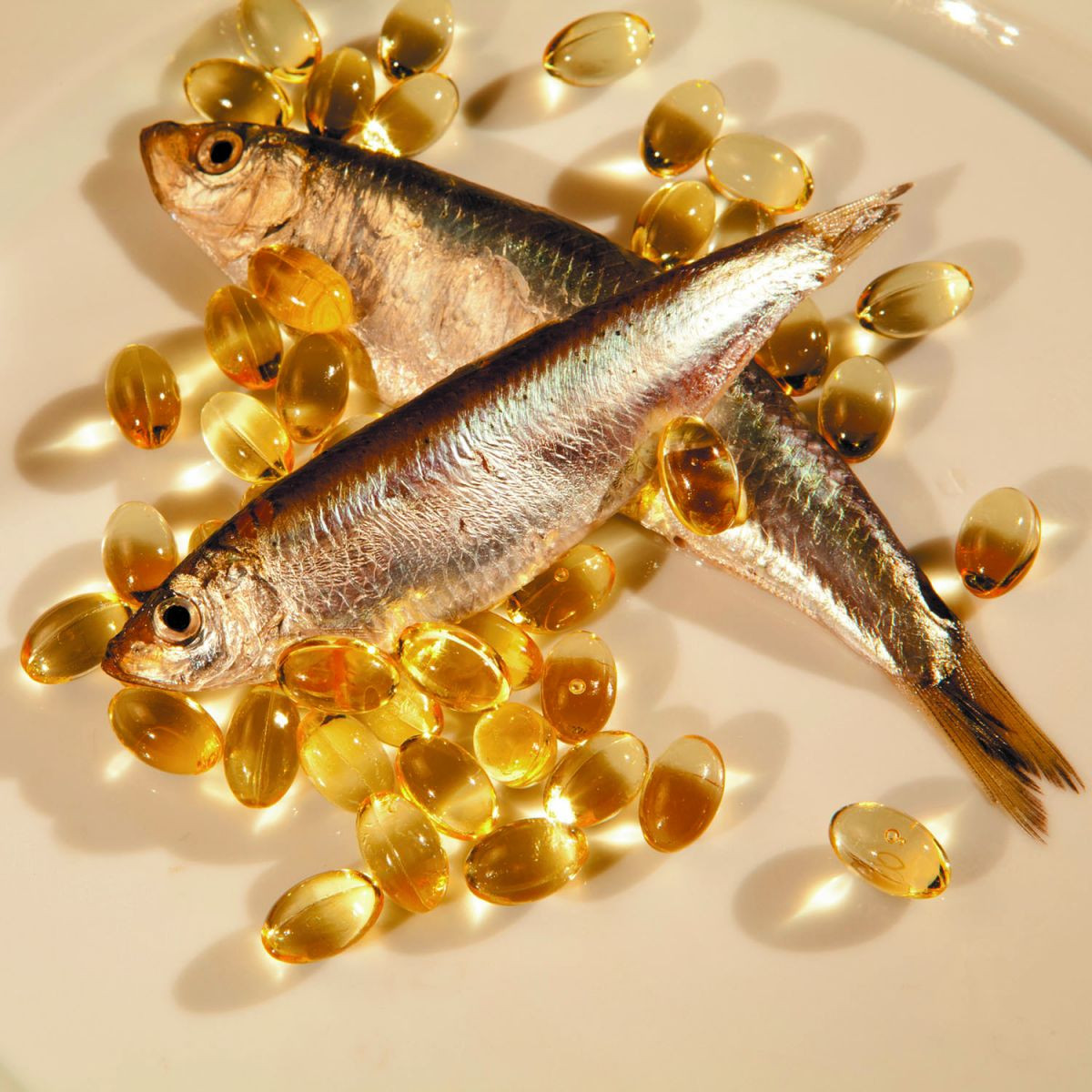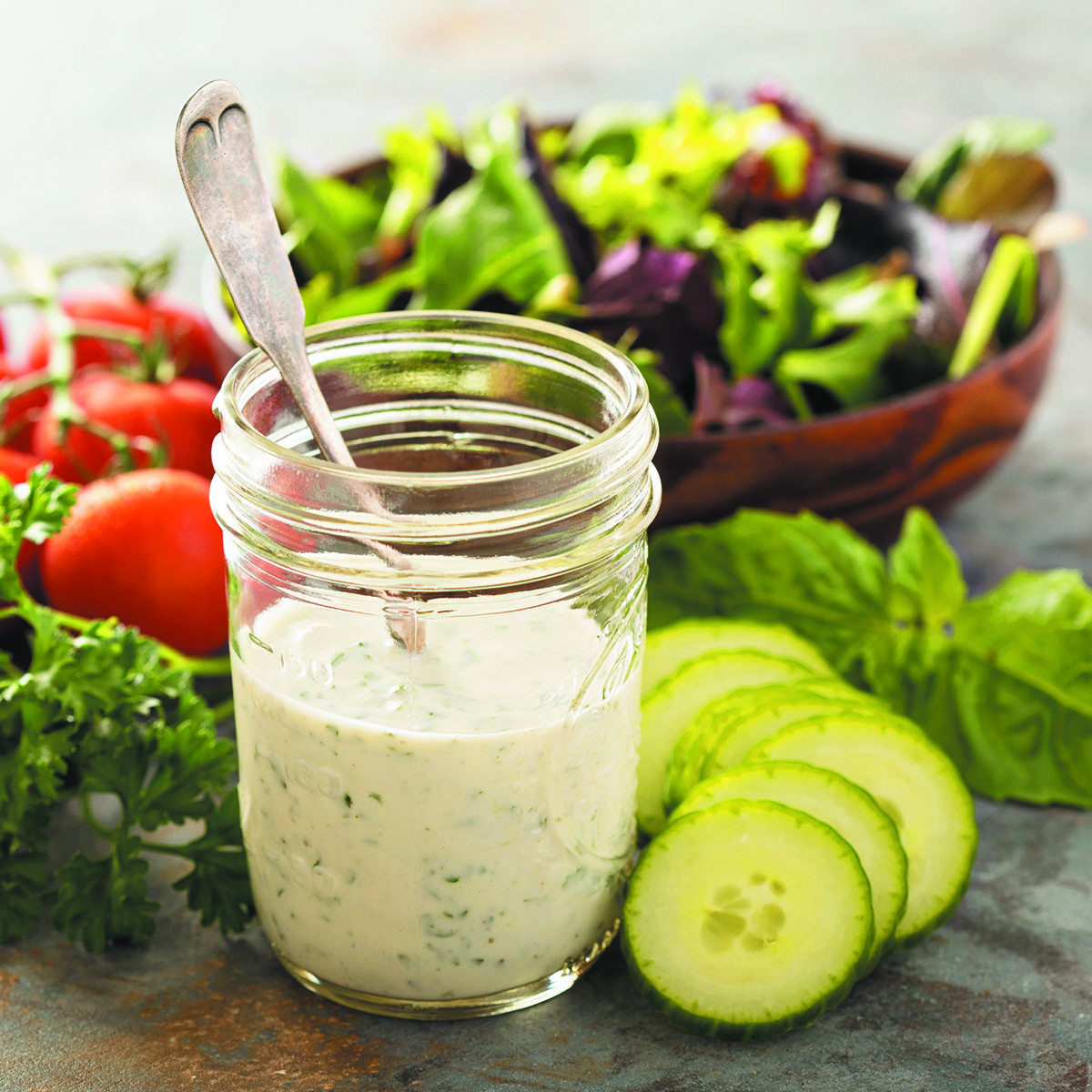
Wildfires: How to cope when smoke affects air quality and health

What can magnesium do for you and how much do you need?

Dry socket: Preventing and treating a painful condition that can occur after tooth extraction

What happens during sleep �� and how to improve it

How is metastatic prostate cancer detected and treated in men over 70?

Could biofeedback help your migraines?

What is autism spectrum disorder?

Plantar warts: Options for treating this common foot condition

Cancer survivorship: What comes next after treatment

Nutritional yeast: Does this savory, vegan seasoning pack a nutritional punch?
Cholesterol Archive
Articles
Taming high triglycerides without fish oil?
Ask the doctor
��Image: © JanIngeskogheim/Thinkstock
Q. My doctor prescribed Lovaza to help lower my high triglyceride level, which is 530 milligrams per deciliter (mg/dL). But I'm a vegetarian and don't want to take a drug made from fish oil. Are there other options?
A. You're not alone: several of my vegetarian patients also have asked me this question. But let's begin with some background. Triglycerides �� which are the main form of fat found in our bodies �� are part of a standard lipid panel blood test. Values higher than 150 mg/dL are associated with a higher risk of heart disease.
Key ingredient in red yeast rice supplements varies dramatically
Research we're watching
Have you considered taking a red yeast rice supplement to "naturally" lower your cholesterol, either instead of or in addition to a prescription statin? Think again. These popular over-the-counter supplements contain an ingredient identical to the one found in the prescription drug lovastatin (Mevacor) �� but in completely unpredictable amounts, a new study finds.
Researchers tested 28 different brands of red yeast rice from four mainstream retailers (GNC, Walgreens, Walmart, and Whole Foods). Two brands contained no detectable levels of the active ingredient, called monacolin K. In the other 26, monacolin K levels ranged from a trace to nearly 5.5 milligrams (mg) per 1,200 mg of red yeast rice. For some brands, the recommended daily serving overlapped with the dosage of prescription lovastatin.
Making sense of the statin guidelines
Image: rogerashford/ iStock
For years, doctors prescribed cholesterol-lowing statins based largely on cholesterol test results. The goal was to lower total cholesterol to under 200 mg/dL, and LDL (bad) cholesterol to under 100 mg/dL. But in late 2013, new guidelines on statin use issued by the American Heart Association (AHA) and the American College of Cardiology (ACC) proposed a major change to that strategy.
These guidelines shifted from a numbers-based approach to a risk-driven approach. Instead of aiming for a specific cholesterol value, doctors were urged to look at a person's entire cardiovascular risk profile when considering treatment. This is a reasonable approach that can help better define when to initiate drug therapy.
Statin use may not benefit people ages 75 or older, study suggests
Research we're watching
To provide more information on the value of statins for older people, which is still a matter of debate, researchers analyzed data on people over 65 who were enrolled in ALLHAT-LLT, a large study conducted between 1994 and 2002.
All participants (average age 71) had high cholesterol and high blood pressure but not heart disease. They were randomly assigned to two groups. One group, of 704 women and 763 men, took pravastatin (Pravachol). The other group, of 711 women and 689 men, didn't take a statin. The analysis indicated that during the five-year study period, there was no significant difference between the groups in the frequency of heart attacks, deaths from heart disease, or deaths from any cause, either among participants ages 65 to 74 or among those 75 or older. The results were published online May 22, 2017, by JAMA Internal Medicine.
Rethinking good cholesterol
A high HDL cholesterol level may not be as beneficial as once believed.
��Image: © JFalcetti/Thinkstock
If you're hoping to avoid heart disease, you probably keep tabs on your blood cholesterol values �� especially your low-density lipoprotein (LDL), or "bad" cholesterol. Too much LDL in the bloodstream helps to create the plaque that accumulates inside arteries, raising the risk of a heart attack. The lower your LDL, the lower your risk of having a heart attack.
In contrast, high-density lipoprotein (HDL) has long been known as the "good" cholesterol. These particles are known to patrol blood vessels, grabbing cholesterol from both the bloodstream and artery walls and ferrying it to the liver for recycling and disposal. In population-based studies, people with high HDL levels tend to have fewer heart attacks, while those with lower HDL values have more.
Statin side effects: Is the power of suggestion at play?
Research we're watching
People in drug studies sometimes experience positive effects even when they take inactive, fake pills (the so-called placebo effect). But sometimes, they experience negative effects from the fake drug �� a phenomenon known as the nocebo effect. A new study suggests that the nocebo effect may explain some of the muscle pain and weakness reported by people who take cholesterol-lowering statins.
The study, in the May 2, 2017, Lancet, involved more than 10,000 people randomly assigned to take a statin or a placebo. The study was "double blind," meaning neither the participants nor the researchers knew who was taking statins. After about three years, the statin proved effective, and all the participants were offered the choice of taking the drug. Most of them continued in this "unblinded" study for an additional two years, and 65% opted to take the statin.
Can I use red yeast rice instead of a statin to lower my cholesterol?
Ask the doctors
Q. My bad cholesterol has been rising, and my doctor suggested that I start taking a statin. I've read that red yeast rice has many of the cholesterol-lowering benefits of a statin, and I would rather go the natural route. However, I recently heard on a newscast that red yeast rice can have adverse effects on the kidneys. Is it still safe for me to take this supplement?
A. It's true that red yeast rice, which contains monacolin K, a chemical that's identical to the active ingredient in the cholesterol-lowering drug lovastatin (Mevacor), may reduce your LDL (bad) cholesterol and lower your total cholesterol. However, an independent analysis of a dozen 600-milligram (mg) capsules of red yeast rice products conducted a few years ago found that the actual monacolin K content varied widely �� from 0.1 mg to 10.9 mg. (The lowest dose of lovastatin is 20 mg.) In addition, one-third of the products were contaminated with a potentially toxic compound called citrinin, which can damage the kidneys. The Food and Drug Administration (FDA) has blocked the sale of red yeast rice supplements that contain enough of the active ingredient to make them as effective as lovastatin because they haven't undergone the drug approval process. Unlike FDA-approved drugs, supplements can be sold without proof of effectiveness and purity.
Is advanced lipoprotein testing useful?
Ask the doctor
��Image: © designer491/Thinkstock
Q. I'm a trim, healthy 57-year-old who exercises religiously, six days a week. I take a low-dose statin and my cholesterol numbers are pretty good (total cholesterol is 146, LDL is 77, and HDL is 51). But a recent blood test showed that my lipoprotein subfractions are not ideal: my small LDL and large HDL values are considered "high risk," according to the report I received. What can I do to improve my lipoprotein subfractions, and how important are they in the overall scheme of things?
A. It sounds like you had advanced lipoprotein testing, which is a more detailed and also more expensive version of a standard cholesterol or lipid test. In general, I'm not a fan of this type of testing, because there is no solid evidence that the results are useful in any concrete way or provide information that can improve a person's health. To understand why, a little background on cholesterol and its role in heart disease may be of help.
Do premature heart attacks run in your family?
If so, be extra vigilant about measuring and managing your blood pressure and cholesterol.
Filling out those family history forms at the doctor's office can be tedious. But sometimes, the devil is in those details. Because heart disease is so common, many people check "yes" to the question about whether their father or mother had heart disease. But if your father had a heart attack at age 77, that's likely different than if his heart attack happened when he was only 44.
"If you have any family history of heart disease, that should serve as a keen reminder to pay attention to factors that can raise your risk of a heart attack, such as high cholesterol, high blood pressure, and diabetes," says Dr. Howard Sesso, an epidemiologist with the division of preventive medicine at Harvard-affiliated Brigham and Women's Hospital. But if a parent or sibling had a premature heart attack, that's an even stronger signal to be more proactive in monitoring and lowering your risk, he adds. A premature or early heart attack is one that occurs before age 55 in a man or before age 65 in a woman.
Is your salad dressing hurting your healthy diet?
Bottled dressings are often rich sources of saturated fat, calories, sodium, and added sugar.
��Image: © VeselovaElena/Thinkstock
You're eating more salad for good health. But you may be undoing the benefits when you use a store-bought salad dressing.
"I have some clients who say they'll only eat salad if they can use dressing. That can add a lot of calories, sodium, sugar, and saturated fat," says registered dietitian Kathy McManus, director of the Department of Nutrition at Harvard-affiliated Brigham and Women's Hospital.

Wildfires: How to cope when smoke affects air quality and health

What can magnesium do for you and how much do you need?

Dry socket: Preventing and treating a painful condition that can occur after tooth extraction

What happens during sleep �� and how to improve it

How is metastatic prostate cancer detected and treated in men over 70?

Could biofeedback help your migraines?

What is autism spectrum disorder?

Plantar warts: Options for treating this common foot condition

Cancer survivorship: What comes next after treatment

Nutritional yeast: Does this savory, vegan seasoning pack a nutritional punch?
Free Healthbeat Signup
Get the latest in health news delivered to your inbox!
Sign Up








